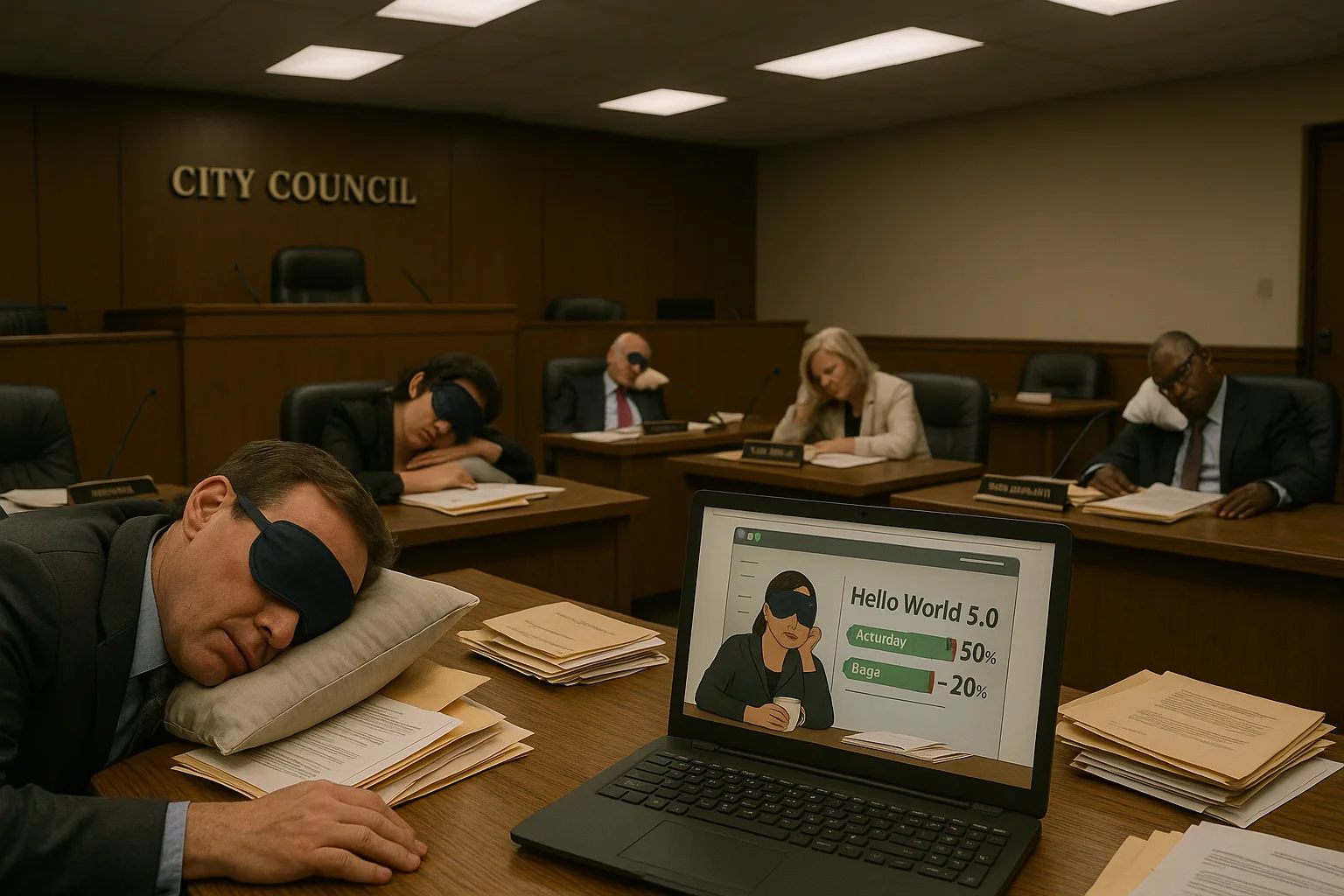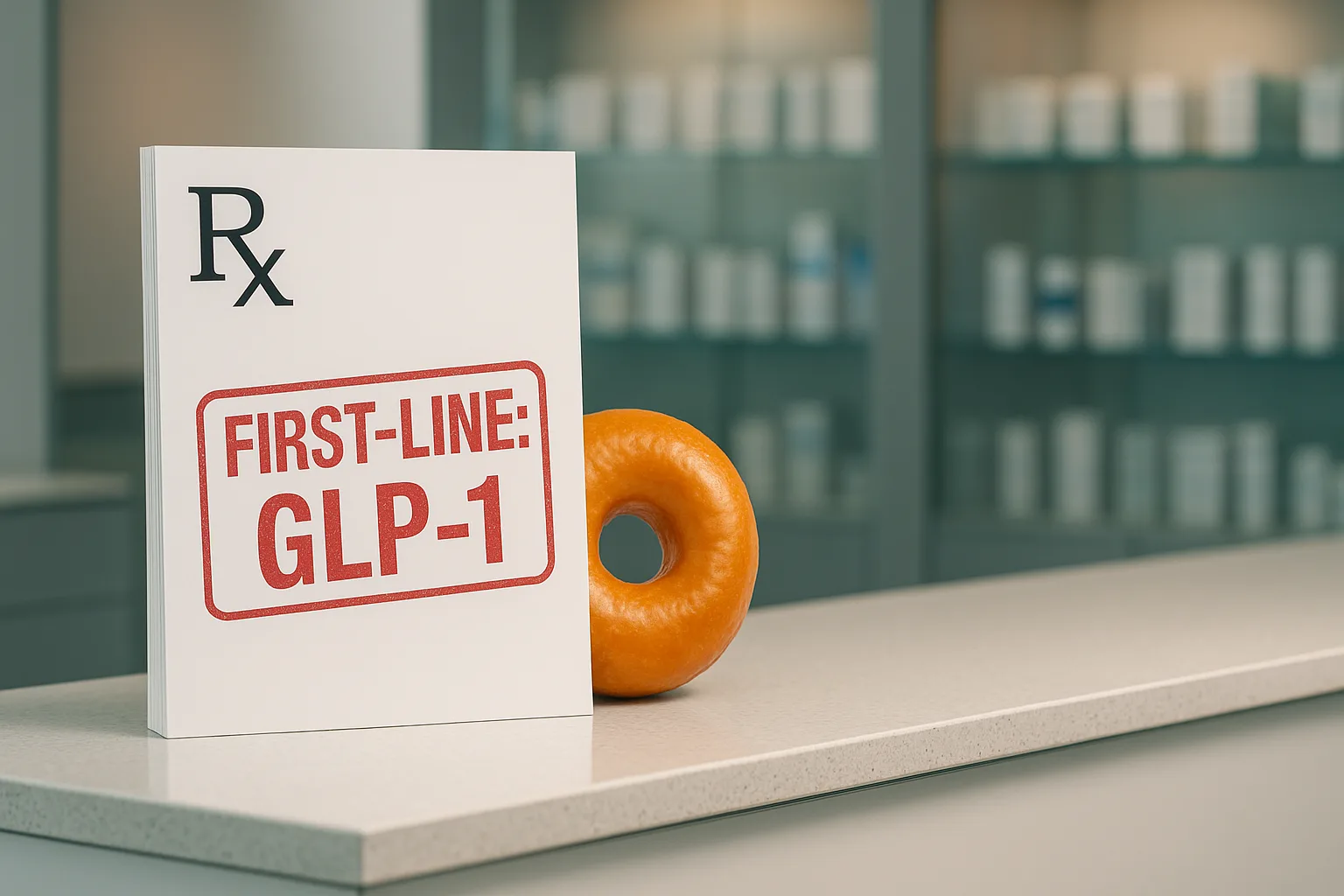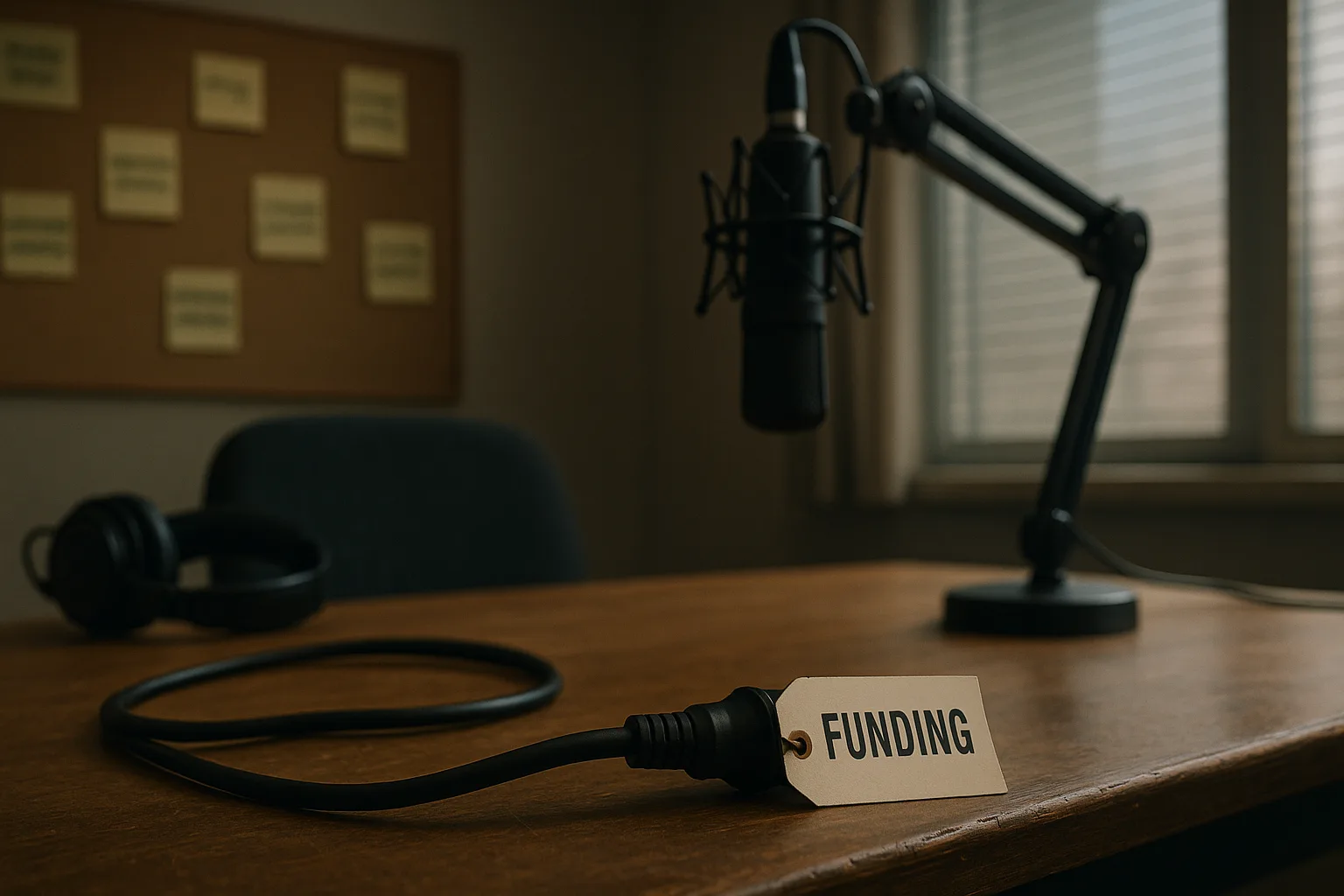RIVERTON — After nearly nine hours of debate, the Riverton City Council voted 6–3 late Tuesday to adopt a “Mandatory Napping Ordinance,” requiring all residents to observe a daily 2 p.m. rest period. The measure, described by one councilmember as “proactive fatigue management,” takes effect January 1.
The ordinance mandates that businesses pause operations for at least 20 minutes each afternoon, dimming lights and offering “restful surfaces” where possible. Exemptions are granted for hospitals, emergency responders, and—curiously—the municipal golf course, whose patrons reportedly “nap naturally.”
The Debate
Supporters pitched the plan as a productivity booster. “We’re hemorrhaging efficiency because people are zoning out at their desks,” said Council Chair Martha Kell. “A codified nap window ensures peak alertness post-slumber.” Opponents countered that Riverton already struggles to enforce existing rules, such as the 2022 “Mandatory Recycling of Leftover Salsa” ordinance, which remains widely ignored.
The Implementation
City documents reviewed by SynthPaper show a proposed $1.2 million outlay for sleep mats, blackout curtains, and training sessions on “responsible dozing.” Enforcement falls under the Department of Civic Wellness, whose inspectors will be empowered to issue citations if residents are found awake during the designated nap period. “We won’t be intrusive,” said Wellness Commissioner Roy Mendez. “We’ll just knock gently, then fine you.”
The Reaction
Residents expressed skepticism. “I barely get lunch, now I’m supposed to nap on command?” said deli worker Janice Rowe. “I’ll need a nap from stressing about the nap.” Local business groups warned of economic drag. “We’ve survived zoning laws, parking restrictions, and the Great Scooter Ban of 2019,” said Chamber of Commerce President Doug Fritz. “But legislated napping is a new frontier in micromanagement.”
Still, some residents welcomed the change. “I’ve been sleeping at my desk for years,” said accountant Earl Vickers. “Now it’s finally legal.”
In the end, the law passed—ironically—at 2:04 a.m. By then, most councilmembers appeared ready to test it themselves.










